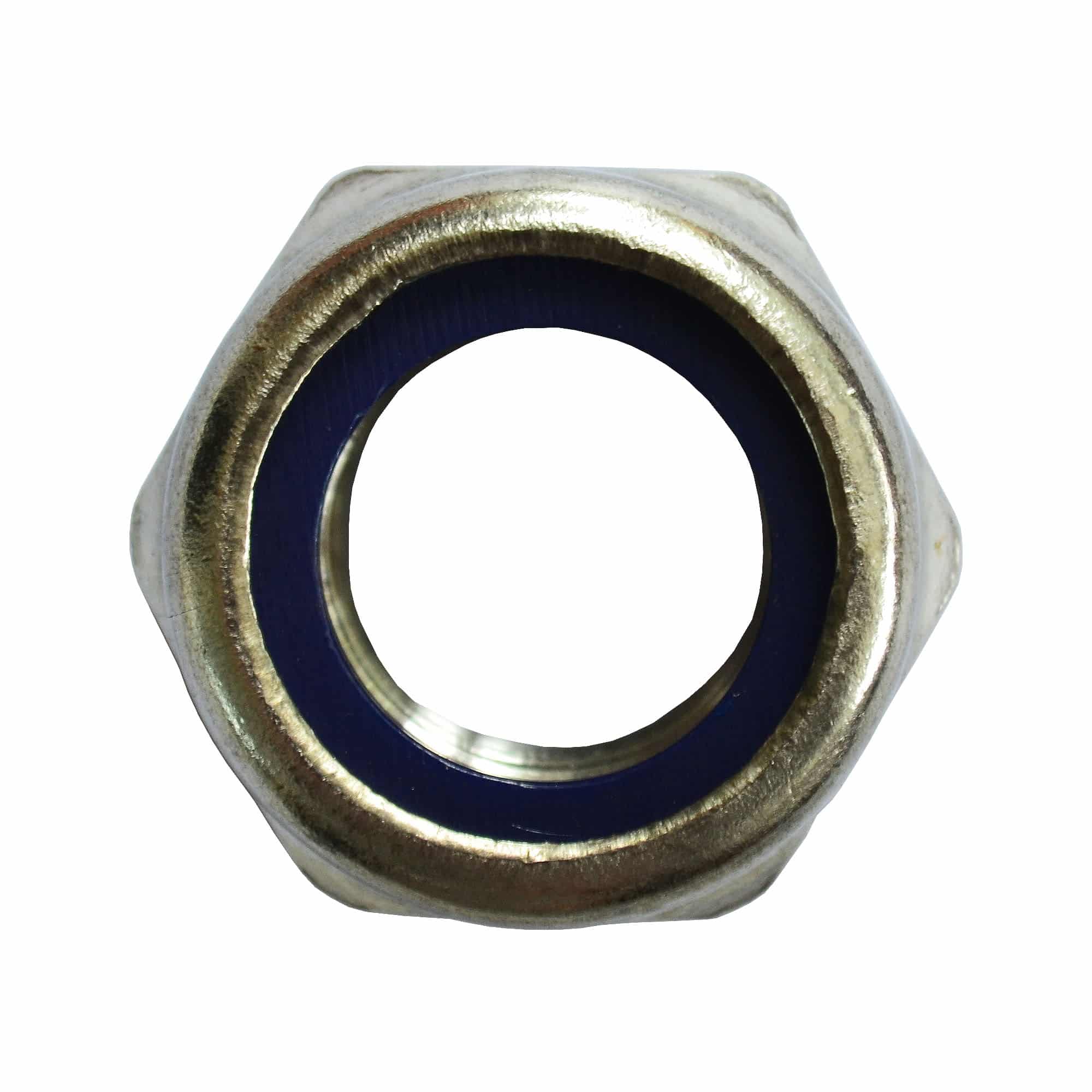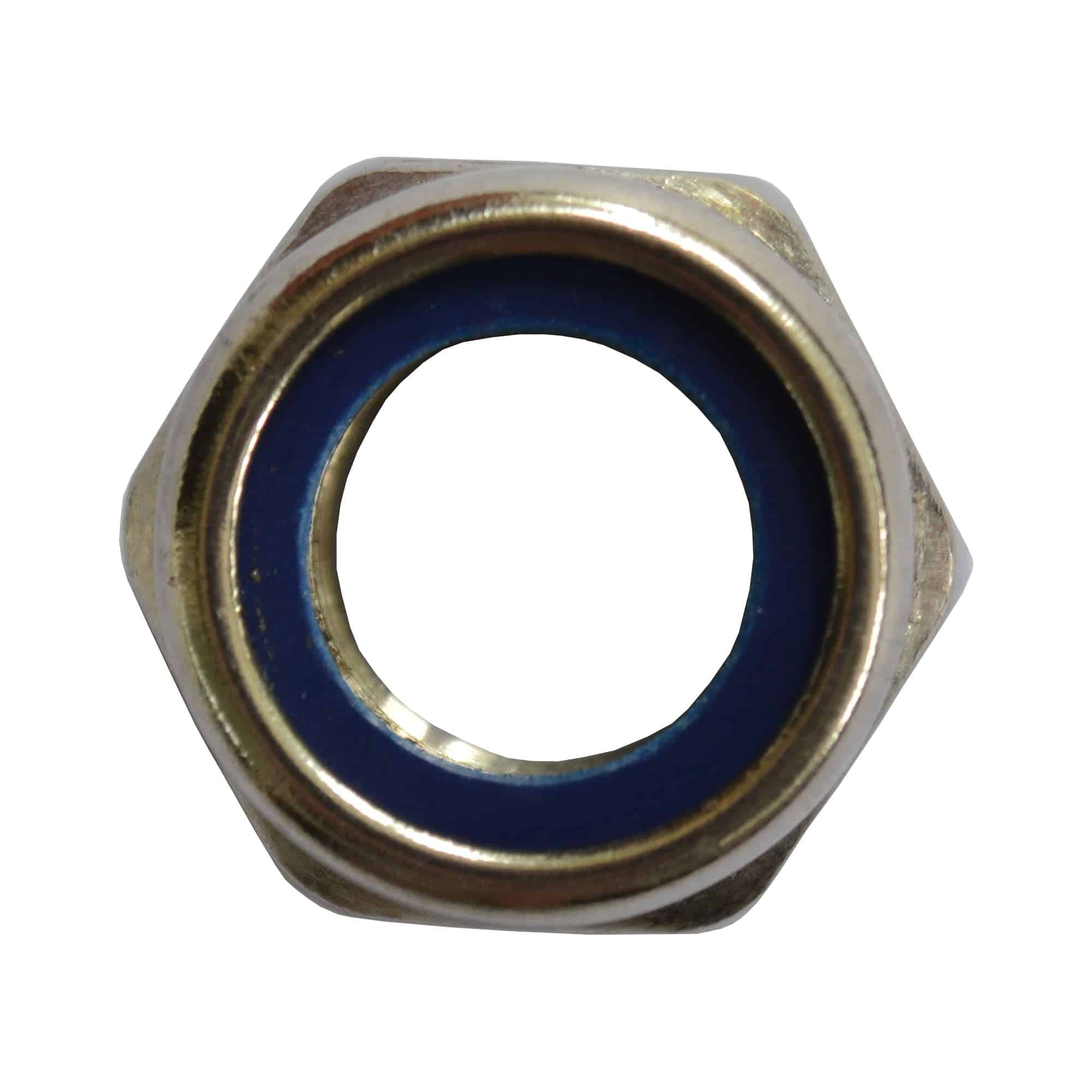- Massive Range
- FREE UK Delivery
- Rapid Dispatch
- Massive Range
- FREE UK Delivery
- Rapid Dispatch
- Massive Range
- FREE UK Delivery
- Rapid Dispatch
£1.04 – £19.89 inc VAT

Secure payments taken with:

This website is secured:
£ MULTIBUY SAVINGS – Order 3 For 10% Off
✔ Specialists In Rapid Shipments Of Any Size
✔ FREE UK Delivery Included
✔ Immediate Express Dispatch From Stock
✔ Tracked Delivery with Order Updates
✔ 30-Day Returns Accepted
@ ☏ Larger Pack Quantities Available
Have you heard about the M4 Nyloc Nylon Nut by Speciality Metals? It’s a game-changer in the world of fasteners. This locking nut is not only incredibly durable, but it’s also incredibly versatile. It’s a low maintenance option that you can trust to be long-lasting, thanks to its 316 Grade A4 material. And the best part? It’s corrosion-resistant and secure, making it an ideal choice for any environment. Whether you’re using it in a marine environment or a more traditional setting, the M4 Nyloc Nylon Nut is up to the task. It’s the kind of fastener that you can use with confidence.

Top quality stainless steel Nyloc nylon nut supplied straight from Warrington, UK.
Speciality Metals offer a massive range of metal products to suit all levels of budget and any size of job. These nuts are offered to compliment our range of nuts, bolts & washers. We pride ourselves on our low prices and rapid fulfilment. Our fasteners are available from immediate stock, so dispatch would be fair immediate.
The M4 Nyloc Nylon Nut Insert Locking Nut is available in both A4 Grade and 316 Grade, ensuring durability and versatility. In addition to being highly secure, these nylon nuts are resistant to marine environments and corrosion, which makes them a top-quality choice for marine or industrial applications. This nylon nut insert locking nut will ensure long-term stability and security for your project. If you are in the marine industry or any other industry that requires a corrosion-resistant solution, this product is a must-have. Trust Speciality Metals for all your fastener needs.
Key product details:
Speciality Metals is known to be the United Kingdom’s best up-and-coming small-quantity metal company.
Furthermore we stock a vast range of plain wire mesh and perforated metal options that compliment our sheet metal range perfectly.
Over 50,000 customers of Specialty Metals are provided with fast, friendly customer service every year. We’re the place to try when you need metal of any shape and size. We’re based in Warrington, UK. We pride ourselves on our rapid turnaround and a large range of options.
Yes, Nyloc nuts are commonly used in various automotive applications to secure components that may be subject to vibration, movement or dynamic loads. The nylon insert provides a locking mechanism that resists loosening, making these nuts well-suited for automotive use where such conditions are prevalent. Whether you’re dealing with engine components, suspension systems or other vehicular parts, Nyloc nuts can offer the reliability needed. However, it’s crucial to select the right grade of material, usually stainless steel like 316 or 316L, and to adhere to the manufacturer’s torque specifications. This ensures that the fasteners can withstand the mechanical stresses and environmental conditions specific to automotive applications. In some critical systems, you may also need to consult engineering guidelines or manufacturer specifications to ensure that Nyloc nuts meet the performance, safety and durability requirements.
Nyloc nuts generally do not require special storage conditions and can be stored much like other hardware components. However, there are some best practices to consider for longer-term storage:
Humidity and Moisture: While stainless steel varieties like 316 or 316L are resistant to rust and corrosion, it’s still a good idea to store them in a dry environment to minimize the risk of corrosion over time.
Temperature: Excessive heat can affect the nylon insert, making it more brittle. Therefore, storing Nyloc nuts in a cool, dry place is advisable. However, normal room temperatures are usually sufficient.
Chemical Exposure: Store them away from harsh chemicals that might degrade the nylon insert or the metal components.
Separate Storage: To avoid mixing different grades or types of fasteners, it’s advisable to store Nyloc nuts in separate, clearly marked containers.
Shelf Life: While the metal part of the nut is unlikely to degrade over time under normal conditions, the nylon insert can degrade with prolonged exposure to adverse conditions like heat, UV light, or chemicals. However, under typical storage conditions, this is usually a long-term concern rather than an immediate one.
Physical Damage: Store them in a manner that prevents physical damage, like chipping or deformation, which could impair their function.
Nyloc nuts, which feature a nylon insert for locking, are designed primarily to resist loosening from vibrations or dynamic loads rather than to provide high impact resistance. While the metal component of the Nyloc nut (often made of robust materials like stainless steel grades 316 or 316L) can withstand a reasonable amount of mechanical stress, the nylon insert is not designed to absorb high-impact forces. If subjected to substantial impact, there is a risk that the nylon insert could deform or break, potentially compromising the locking mechanism. Therefore, while Nyloc nuts are highly reliable in applications with constant vibration or minor shifting, they may not be the best choice in scenarios that involve significant impact forces. If impact resistance is a crucial factor for your application, it’s advisable to consult engineering guidelines and consider other types of fasteners that are specifically designed for high-impact conditions.
Nyloc nuts can be used in outdoor settings, but their suitability largely depends on the material of the nut and the specific conditions they will be exposed to. For outdoor applications, choosing a rust-resistant material like stainless steel grades 316 or 316L is often recommended to withstand moisture and corrosion. However, there are additional factors to consider:
UV Exposure: Prolonged exposure to ultraviolet (UV) radiation can degrade the nylon insert, affecting its performance over time. If UV exposure is a concern, additional protective measures such as coatings or shields may be needed.
Temperature Fluctuations: Outdoor settings often expose fasteners to varying temperature conditions, which can affect both the metal and the nylon insert. While stainless steel is generally robust in fluctuating temperatures, the nylon insert could become brittle in extreme cold or lose its effectiveness in extreme heat.
Chemical Exposure: Outdoor conditions may also expose Nyloc nuts to various chemicals, like road salt, that can be corrosive. While stainless steel is relatively resistant, it’s important to ensure that the specific grade you’re using is suitable for your application.
Mechanical Stress: The mechanical loads in an outdoor setting can be unpredictable, and the Nyloc nut will need to be selected based on its ability to withstand the forces it will encounter.
Check out our recent article ‘Unlocking the Benefits of Nyloc Nuts: The Ultimate Guide‘ for a deeper dive into nyloc nuts. Our goal for our blogs and help guides is to answer as many questions as possible to help to explain the possibilities of mesh to our customers.
We are also very proud of our ever expanding YouTube channel.
Contact us today if you have any questions at all. We are always really keen to help in any way that we can.
We are also very proud of our highly popular eBay store, check us out there too.
Thank you for checking out our product.
£13.50 – £260.40 inc VAT

£13.50 – £260.40 inc VAT

Speciality Metals
Unit 1, Farrell Street, Warrington,
Cheshire, WA1 2WW, United Kingdom
Quick Links
Payment Options
